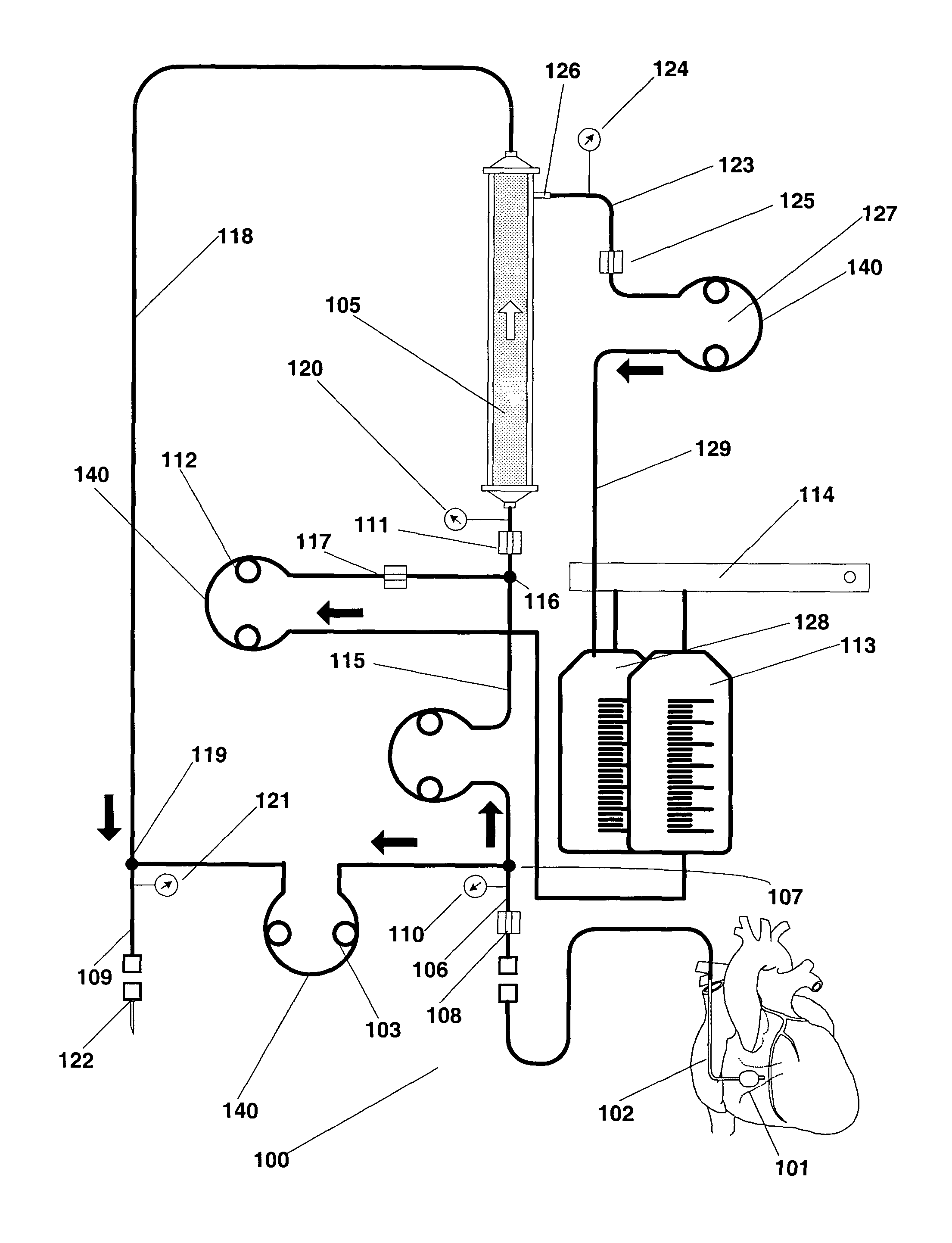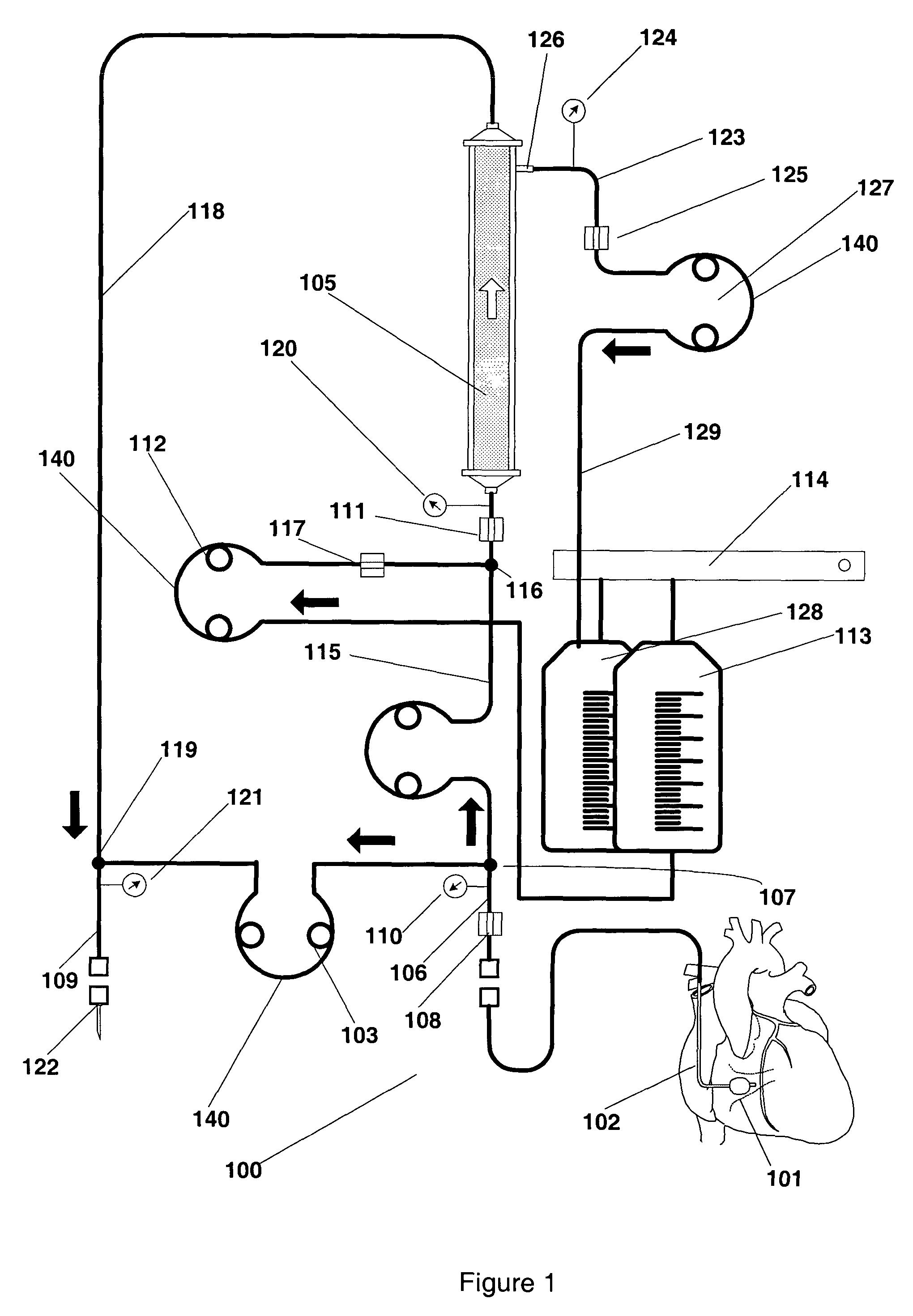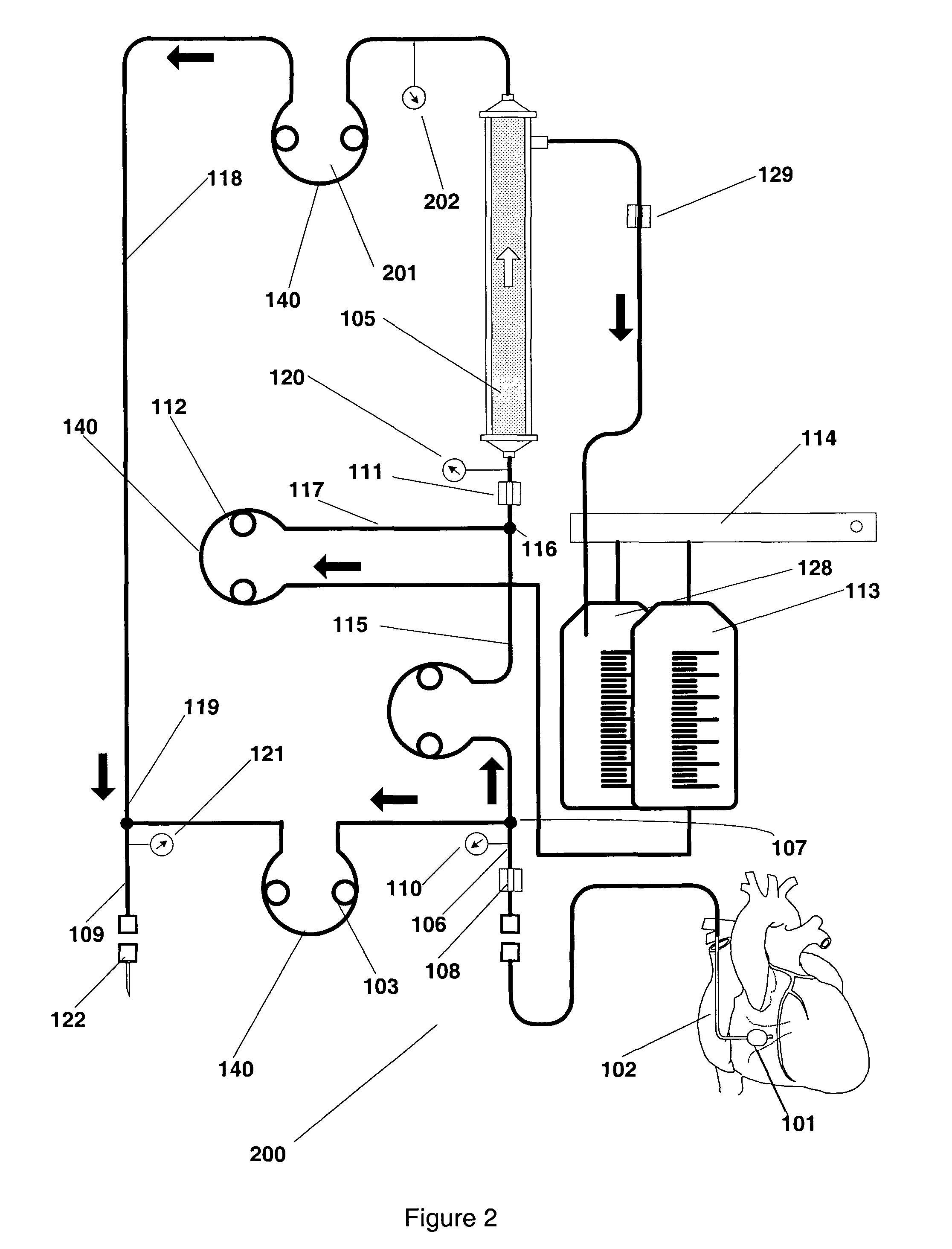Method and device for removal of radiocontrast media from blood
a radiocontrast media and blood technology, applied in the field of contrast nephropathy, can solve problems such as introduction of new limitations, and achieve the effects of reducing hct, accurately detecting contrast presence, and high contrast conductivity
- Summary
- Abstract
- Description
- Claims
- Application Information
AI Technical Summary
Benefits of technology
Problems solved by technology
Method used
Image
Examples
second embodiment
[0113]FIG. 2 shows a second embodiment that is a slight modification to FIG. 1. In this design the ultrafiltrate pump 127 has been removed and replaced with a post filter blood pump 201. Ultrafiltration is achieved by creating a difference in blood flow between prefilter blood pump and post filter blood pump. This variation is provided to show that variations of pump configurations are possible and are within the scope of this invention. A post filter pressure transducer 202 may also be placed at the outlet of the filter 105 to measure post filter pressure.
third embodiment
[0114]FIG. 16 shows a third embodiment in which the contrast removal from the blood using the filter 105 is performed in a batch process. The blood is first withdrawn and collected in a bag 180. It may also be filtered during this process but since the blood flow will be as high as 200 ml / min the infusion duration for blood into the filter and collection bag will be as short as 6 to 12 seconds (20 to 40 ml). The entrained blood (which contains of contrast) later pumped back through the filter by the reversal of the prefilter blood pump and is infused into the patient after contrast is removed. Blood is pumped into the blood collection bag post filter until the bolus of contrast has been entrained plus an additional 20 ml of non contrast diluted blood to ensure that the contrast is entrained within the filter and bag only. The prefilter blood pump is stopped and the bypass blood pump is restarted switching the control of the CS physiological blood flow from the prefilter blood pump t...
PUM
| Property | Measurement | Unit |
|---|---|---|
| Volume | aaaaa | aaaaa |
| Volume | aaaaa | aaaaa |
| Viscosity | aaaaa | aaaaa |
Abstract
Description
Claims
Application Information
 Login to View More
Login to View More - R&D
- Intellectual Property
- Life Sciences
- Materials
- Tech Scout
- Unparalleled Data Quality
- Higher Quality Content
- 60% Fewer Hallucinations
Browse by: Latest US Patents, China's latest patents, Technical Efficacy Thesaurus, Application Domain, Technology Topic, Popular Technical Reports.
© 2025 PatSnap. All rights reserved.Legal|Privacy policy|Modern Slavery Act Transparency Statement|Sitemap|About US| Contact US: help@patsnap.com



